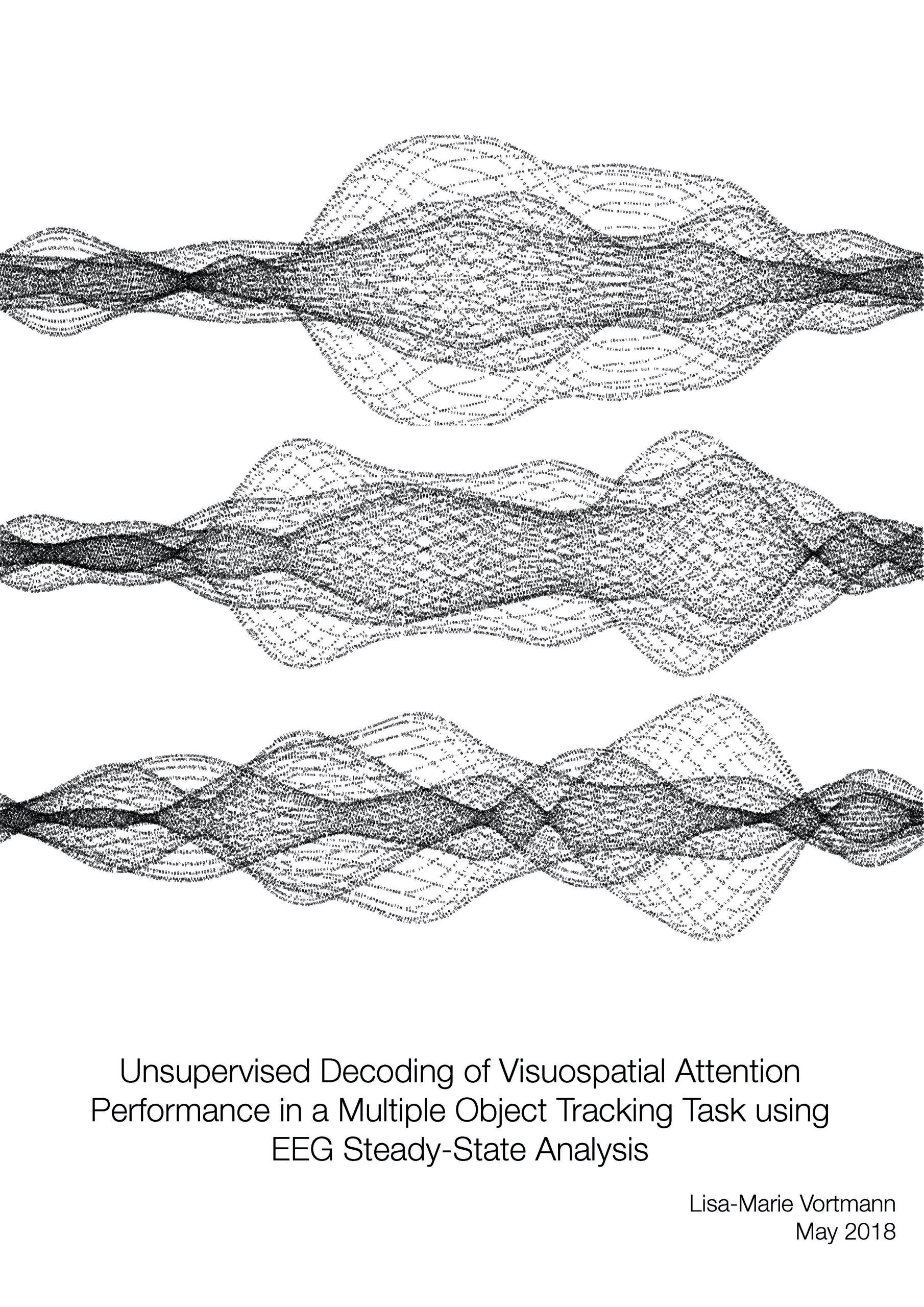Unsupervised Decoding of Visuospatial Attention Performance in a Multiple Object Tracking Task using EEG Steady-State Analysis
for Lisa-Marie Vortmann
This research explores how the brain sometimes tracks multiple objects (e.g. a flight controller) and how brain activity can be used to find out when tracking any such object fails. The Thesis Art piece visualizes EEG data over time, depicting tracking errors and the challenge of decoding brain signals.
The Creation Process
The visualization was created using R and ggplot, with an emphasis on bandpass filtering to capture the underlying brain activity. A trick was used: Flickering the objects (like a stroboscope) at different frequencies allows tracing the processing of each object throughout the brain. With some advanced signal processing techniques, one can then recover the traces.
Artistic Concept
The visual concept reflects how brain activity marks stimuli and shows how these marks can be detected by an external observer. Because the bandpass restricts the signal to near-singular sinoidal band, we can make use of an aliasing effects to let a new second-order dynamics emerge. This closely corresponds to the hidden dynamics of brain activity. The triptych format was chosen to highlight the different phases of tracking and loss in the experiment.
“EEG data has the potential to reveal more than just brain signals — it can show how attention works, but this study is also a reminder that results are not always universal.”
Benedikt Ehinger
Personal Reflection
Reflecting on the process, Benedikt notes: “While the experiment succeeded perfectly when recording Lisa’s own brain activity, it didn’t work with 90% of other participants, leaving us puzzled.” Benedikt later followed up on this puzzle, but more work needs to be done. Despite these challenges, creating the artwork that visually represents brain activity felt rewarding to Benedikt. “It pushed the boundaries of signal processing and offered a literal depiction of how brain signals can be interpreted by others,” he notes.
Lisa-Marie is now a professor at the University of Groningen.
